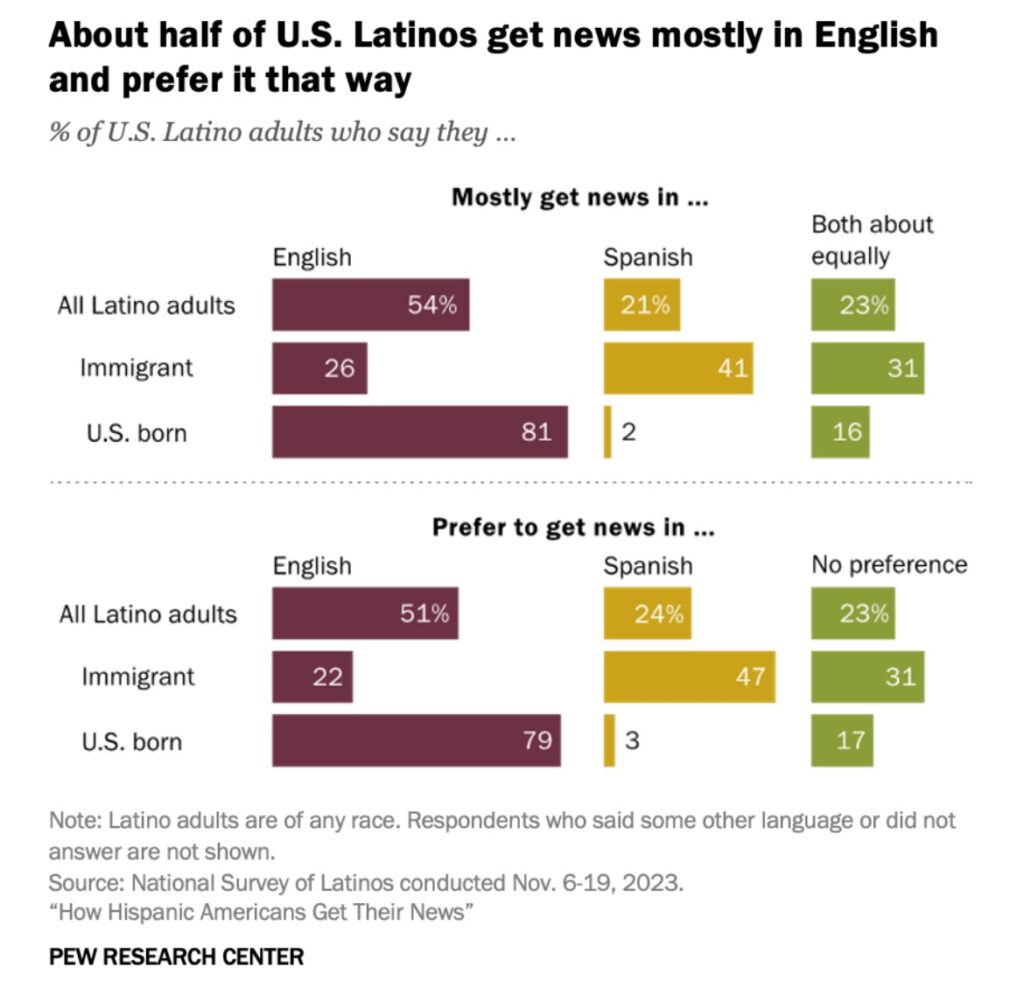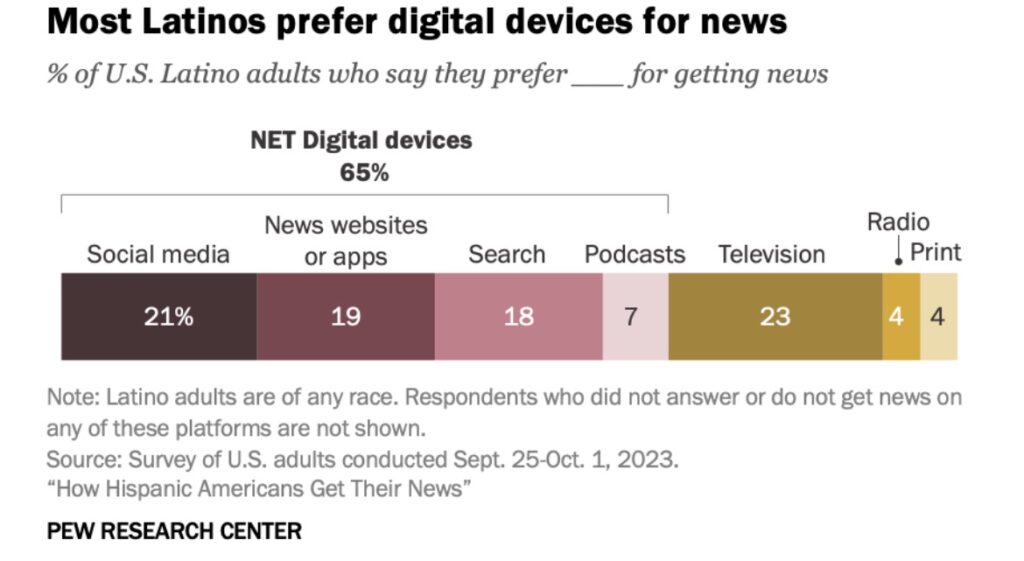A recent study conducted by the Pew Research Center has shed light on how Hispanic Americans consume news and information in the United States. The study found that Hispanic Americans have unique patterns and preferences regarding staying informed, with a mix of English language and digital platform choices playing a pivotal role in their media consumption.
The report finds that just over half of U.S. Hispanic adults (54%) get their news mainly in English—far higher than the share who mostly get it in Spanish (21%). About a quarter of Hispanic Americans (23%) say they equally consume news in both languages.
There is an almost identical pattern regarding the preferred language for news: 51% prefer to get their news in English, 24% prefer Spanish, and 23% say they do not have a preference.

This finding may come as a surprise to some, as the Hispanic population in the US is often associated with Spanish-language media outlets such as Univision and Telemundo. Hugo Balta, Publisher of Rhode Island Latino News (RILN), says this misconception is compounded by mainstream media’s one-dimensional coverage of Hispanic and Latino communities.
“The incessant depiction of the community in mass media is that of the other,” said Balta. “A foreign-born person, and not an American. The U.S. Census finds otherwise.”
The 2020 census reveals that nearly 1 in 5 Americans, totaling 62.6 million people, identify as Hispanic, showing a 23% growth from 2010 primarily due to U.S.-born Latinos. Despite the rapid growth of the Hispanic population, there has been a decrease in the percentage of Latinos who speak Spanish at home.
According to the United States Census Bureau, the Latino population in Rhode Island was more than 183,000 in 2022, representing more than 17% of the population.
Providence has the largest population of Latinos in Rhode Island and the second largest in the New England states.
The Pew Research Center study illuminates the need for media outlets to adapt to meet the needs and preferences of the diverse audience. “LNN has an English-first, multimedia digital approach to best serving Hispanic and Latino audiences, reflecting how and where the emerging majority consumes news, information, and entertainment,” said Balta.
The report also found that digital sources are becoming increasingly important. Social media platforms are popular among Hispanic Americans for staying informed about current events.
Latinos get their news from various sources, but most say they prefer to use digital devices over other platforms. Nearly nine in ten (87%) say they get news from digital devices at least sometimes, and 65% say they prefer this form over TV, radio, or print. Digital devices have become an increasingly common source for news among Latinos—and among Americans overall – in recent decades, a shift driven by the rise of the internet.
Latinos are more likely than White Americans (55%) and Black Americans (50%) to prefer getting news from digital devices. Latinos are also more likely than White and Black adults to get news from social media, at least in part because Latino adults tend to be younger than other groups, and young adults are more inclined to use social media for news.
Nearly three-quarters of Latino adults under 50 (73%) prefer to get their news on digital devices, including 27% who prefer social media specifically.

According to Pew, Hispanic and Latino news consumers primarily rely on Hispanic news outlets for information about their countries of origin or where they trace their roots. The study defines these outlets as those that specifically cater to Hispanic audiences by offering news and information tailored to their interests.
Balta said most of those types of news outlets underserve the majority of the community. “In 2019, the Craig Newmark Graduate School of Journalism at CUNY mapped out what the local Hispanic media landscape looked like in the United States,” said Balta. “Research found that of the more than 300 news outlets, regardless of platform, that focused specifically on Hispanics, Latinos – the majority were exclusively in Spanish-language.” He said that’s a problem considering that most Hispanics and Latinos are U.S. born and English is their native language.
ABOUT THE LATINO NEWS NETWORK (LNN)
Founded in 2012, LNN’s mission is to provide greater visibility and voice to the Hispanic-Latino community, amplify the work of others in doing the same, mentor and provide young journalists with real work experiences, and apply the principles of solutions journalism in producing stories focused on the social determinants of health, and democracy.
Rhode Island Latino News (RILN) is an affiliate supervised by the Latino News Network.




